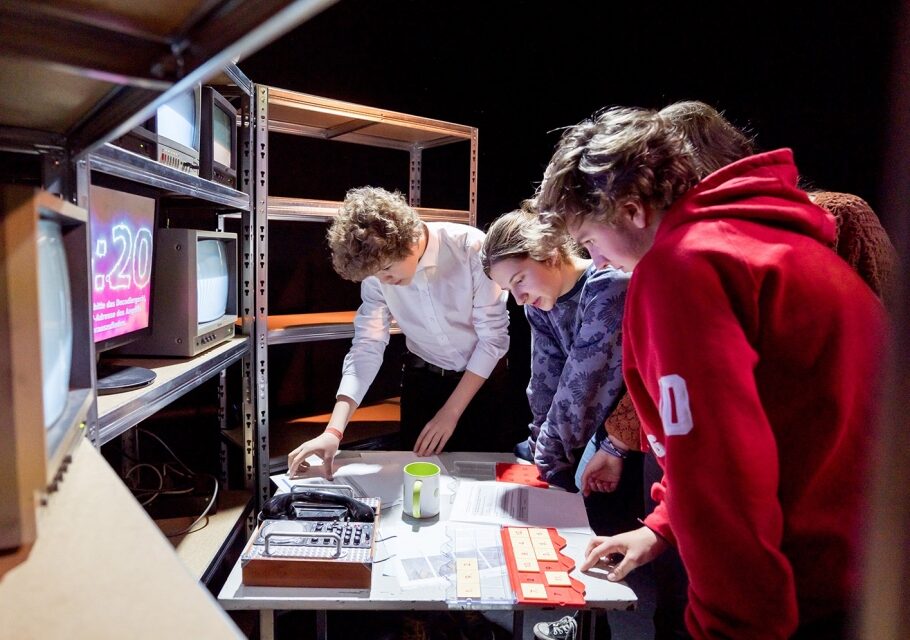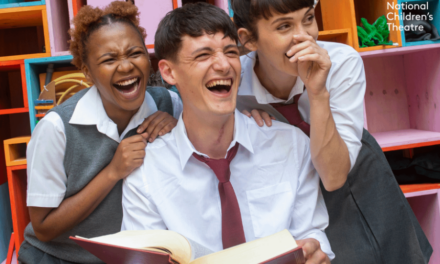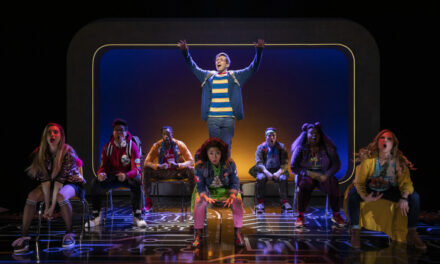Why democracies are not about doing the right thing, but about how the right thing is always being done in the right way.
Politics as a Narrative and the Problems Therein
The starting point for our work on the complex of democracy and nationalism was twofold: after several discussions about the causes underlying Europe’s regression into nationalism, the following two terms turned out to be crucial for our understanding of the nexus of democracy and nationalism: populism and conviction, as will be explained below.
The second aspect we came up with was the fact that the European idea of joining sovereign national states is nowadays more and more conveyed by a narrative; by a story, that is being told with a somewhat commercial slant; a narrative, that can either be believed or not, but is not being experienced. We think that Europe can be understood by understanding the history of the various groups of people and by understanding and appreciating all the aspects of being very different and at the same time still sharing the same fate.
Experience-based Political Decision-making
Hence, we wanted to address the topic as experience-based as possible because our work with youngsters has taught us that physically accessible knowledge is more enduring and sustainable, especially for young people.
This is an insight that we gained from our work with scenarios.
“A scenario is essentially a written script, or an outline for a story, that will require further development before it is actualized. It is, therefore, a sketch for an imagined situation. (…) Scenarios are tools for helping us to take a long view in a world of great uncertainty. The name comes from the theatrical term scenario. (…) In this context the precise definition of ‘scenario’ is: a tool for ordering one’s perceptions about alternative future environments, in which one’s decision might be played out.”
In the above-mentioned sense, scenarios—which by the way are tools that stem from the theatre—usually do not only reveal content in a regular, scholarly way; rather, instead of showing one aspect or part of a situation, scenarios depict a course of action and the outcome and consequences of decision-making. When dealing with a scenario, the viewer is able to take part in an event rather than just gaining information about it.
Scenarios display contexts multi-dimensionally, thereby also highlighting the consequences of a decision. In this way, scenarios visualize content in a manner that enables the viewer to not just receive information but actively participate in whatever is being shown in an immersive, emotionally-affecting way. But as scenarios are quite powerful and moving means of display, their mode of depicting future realities and current situations does not always result in desirable states of mind.
If you remember Al Gore’s film An Inconvenient Truth: A Global Warm(n)ing (2006), in which he climbs a contraption on stage in order to reach the top of the temperature graph in 2050, then you know that this method of displaying facts and gaining knowledge is dramatically different than just reading numbers in a book. The theatre, and hence also the scenario, bring facts to life. We can think about and understand the term ‘accessible knowledge’ in a similar way when we speak about the theatre and how it can enable us to not just learn but actively take part in the act of receiving new ideas. However, the act of reflecting and questioning these ideas is just as important as receiving new ideas. Information—especially nowadays—must always be checked for accuracy.
Emotion-infused Decisions
The sort of “Think-Event” found in the aforementioned film by Al Gore is what we were aiming for when we started thinking about our approach towards the topic of democracy and nationalism.
We wanted to involve our viewers – give them the chance to take decisions and enable them to experience the consequences of their choices. Finally, we ended up creating an accessible scenario in the manner of an escape room-like gameplay. But still, scenarios are tools to rehearse future realities in the first place. They can—in the worst case–easily threaten people and evoke strong emotional reactions in viewers. By showing the possible future state of a community, scenarios have the potential to directly manipulate people’s beliefs and their readiness to take immediate action, as I have also pointed out in my academic research on scenarios (Wem gehört die Zukunft? Wissen und Wahrheit im Szenario). On the one hand, we wanted to deliver a theatrical experience guided by action to the fullest extent possible, while on the other hand, we did not want to create a situation to choose between an alleged ‘good’ and an alleged ‘evil’, as we firmly believe in thinking, reflective and considered decision-making. That is why we are convinced that the use of scenarios—especially with young people—should always be carefully considered, especially when it comes to political decision-making. Hence, we reflected on the impact scenarios can have on people’s mind-sets and readiness to make decisions very critically and carefully.
Should decision-making be based on emotions like panic and fear, anger and frustration, and made while under pressure and being pushed towards an opinion, or because there are no alternatives? We think that political decision-making should never be based only on emotions.
We identified these emotional effects as crucial when it comes to distinguishing between a well-reflected, autonomously-made, and considered political decision from fear-infused and highly reactive, panic-driven decision-making. The moment of distinguishing between a moderate, rational representation of policy and a populist agenda of emotionally-coded opinions is the crucial part of the story for our topic.
Populism Works Well on Both Sides
Although it is frequently becoming en vogue to have feelings about a decision rather than arriving at it via careful reflection, we came to the conclusion that emotional pressure is not an ideal instrument to prompt people to make up their minds. In fact, the opposite is true: pushing for a decision, manipulating people’s opinions by emotionally involving them and having them imagine themselves in a future state of reality anticipated by a scenario can be actually considered a driver of populism–no matter which political hue it might serve.
That is why the emotional involvement of people is generally a manipulative tool and, hence, cannot be considered fair or as a legitimate instrument to guide voters’ actions. Addressing people’s emotions explicitly does not address their reasoning, people’s capabilities of critical reflection, or their clear considerations. The opposite is the case: as a scenario aims instead to trigger immediate emotional reactions, it should never be the main source of information or the basis of personal decision-making.
We concluded, therefore, that neither solely effective triggering and emotions nor cold calculation alone should lie at the heart of any process of making up our minds and voting for a political course of action.
A Society is Only as Good as its Members’ Ability to Reflect on their Convictions
But where do our opinions actually come from? And how do we know what we think we know? What are the sources of our knowledge? Why are we so sure that what we want is also just and good for us? How can we be sure that everything that feels right is also good? Do we really have a choice? And isn’t a democracy only as good as the mental acuity of its voters? Is it true that most people’s opinions are necessarily the best possible opinions? What can we learn from Europe’s mass movements during the middle of the twentieth century? Furthermore, if a democracy is able to change everything about itself based on the will of the majority, can it also change itself into a non-democratic form of governance? And, a question of the utmost important: does a democracy depend on well-informed citizens? What if the masses are being emotionally manipulated? If a community or a society’s fate is totally dependent on the will of the majority, then it is completely regulated by how knowledgeable and well-informed its majority is. The upshot: it is crucial that the majority always be well informed, politically educated, reasonable, fair, responsible, and always ready to truly reflect upon its own interests. The bad news: this is almost never the case.
So What Can be Done?
This is what makes democracies so volatile and vulnerable to psychological and emotional influences – this is also why our democracies are advanced yet weak. For instance: a few decades ago during the Cold War, when Europe was politically separated, foreign military interventions aimed to directly manipulate public opinion in the various countries. Foreign militaries tried to influence their adversary’s population in order to manipulate a country’s basis of decision-making. The US took action in Western Europe, especially West Germany, while the Soviets took action in East Germany. These undertakings, some of which are still occurring, were called ‘information operations’ and even included the establishment of TV stations with programs designed to influence public opinion.
What Does a Democracy Look Like?
The above-mentioned nexus between information and democratic decision-making shows that—as astonishing as it sounds—in a democracy, it is easier to influence what people think than how they make decisions. This is also why the source of information, the interests that go along with choices, and the way information is encoded, disseminated, and targeted is of such great relevance.
From this point of view, the role of media, the state of information, and the ability to manipulate what people actually think, believe in, and hope for is of vital importance and one of the most, if not the most important, issues required to make democracies work.
That is why we chose to illuminate the nexus between populism and democracy, and why we chose to involve our young viewers in an intriguing game in which they pretend to do the right thing. We did so by opting for a form of experimental, experience-based performance to convey our topic rather than a classical play. We did this because we wanted to show where our convictions, knowledge, and belief in the “good” actually stem from. We wanted to lay open the connection that exists between conviction and populism and, finally, how populism-prone a democracy really is.
The gameplay we developed asks the players to continually make decisions, prompts the players to do the right thing, triggers emotions, and tries to push and manipulate the viewers—who are actually the players—by arguing in the name of necessity, global-collapse, and greater relevance. Without the players’ knowledge, their decisions are being completely manipulated, so without even realizing it, the players are tricked into playing a malicious game that successfully drives them to totalitarianism.
Synopsis
No other governmental form relies so much on opinion and conviction than a democracy. Whereas in any regime a small elite command what is to be done, a democracy totally depends on its members to make up their minds and take decisions on their own.
On the one hand, the democratic system ensures that decisions are made that the majority believes to be right. On the other hand, however, it is absolutely indispensable for a democracy that its members have access to information, learn about their options, and consider the consequences thereof. In a democracy, everybody—all citizens—can be held responsible for a state’s decision-making.
But to make a decision, people have to be informed. This is—and this might come as a surprise to some—the reason why people in democracies are much more prone to populism than in regimes. Minds, opinions, and convictions are targeted by many institutions and are easily manipulated by all sorts of sources, influencers, companies, and all types of institutions, including states. This is why populism as a way of influencing people’s minds turns out to be necessary in a democracy and, hence, needs to be addressed, because each side of the political spectrum, every company and lobby works to influence people’s decision-making.
What can we do about it? What can we do to ensure that not only the best decisions are taken but that the best decisions are taken by free, autonomous human beings who are capable of self-reflection and care not only about ‘what’ is being done, but about ‘how’ it is being done? What can we do to honestly and clearly reflect upon the quality of our own decision-making? How can we avoid reacting only to future realities? In short: in a democracy, power lies in the hands of the population. If you want to reign in a democracy, you will necessarily have to influence the majority of the population. And if you cannot influence the majority´s decision-making, you can still try to influence what the majority thinks it wants.
It is not enough to ask what we want; instead, we have to ask why we want what we want, and where our freedom to make these choices comes from.
That is why it is not enough to ask whether a decision is right or wrong. That is why it is not enough to look at what ideas a candidate seems to stand for. That is why it is not enough to distinguish between left and right. It is not enough.
Four questions to not only do something, but also to make sure that what is being done is done in a democratic way.
It is only enough when we have asked ourselves the following questions:
- What do I want?
- Is what I want better than what others want, and, if so, why?
- How can I be so sure that what I want is better than what somebody else wants?
- Why do I want what I want?
We asked these questions by setting up a gameplay in which the young participants were influenced by an artificial intelligence that seemed friendly but instead lured the players into a trap. The AI is trying to establish a totalitarian regime by convincing the players that this kind of regime was the only way to avoid global catastrophe. Being prompted and pushed in a time-critical situation in an escape room-like scenario, the players are easily talked into taking a decision that only seems to be right but actually results in the free-willing abolishment of all rights of freedom.
By this, we tried to enable people to experience how their opinions can be imperceptibly influenced by interests that are not really their own in order to make people sensitive to the fact that the source of what they think is their own free will is often external to their own minds.
This article was originally published by the European Theatre Convention as part of Youth Theatre: A Casebook. Reposted with permission. Read the original article.
This post was written by the author in their personal capacity.The opinions expressed in this article are the author’s own and do not reflect the view of The Theatre Times, their staff or collaborators.
This post was written by Jules Buchholtz.
The views expressed here belong to the author and do not necessarily reflect our views and opinions.

















